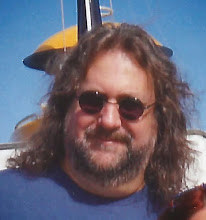 Flash #194 (On Sale: December 4, 1969) has a cover by Neal Adams.
Flash #194 (On Sale: December 4, 1969) has a cover by Neal Adams.The Flash stars in "The Bride Cast Two Shadows" by John Broome, Ross Andru and Mike Esposito. Joan Boardman awakens one night in a trance, walking out of her hotel murmuring something about finding "her love." On the street she sees a poster of the Flash and thinks, "It's him!" The Flash is a few blocks away fighting the Owl Gang and during the fight Joan rushes into the line of fire and is knocked unconscious. When the police and Iris arrive (Iris in her role as a news photographer), Iris suggests that they take the unconscious girl to her house (in real life something this stupid would never happen, but in John Broomeland, this is the norm).
Once there, Joan wakes up and begins referring to the Flash as Daniel. Whenever the woman stares at Barry, he has visions of a past life where he is proposing and planning for his wedding to Elfriede Talman who is the spitting image of Joan Boardman. Eventually Iris uncovers the story of Daniel Porter and Elfriede Talman. Daniel was the mayor of Central City a hundred years ago and is a look-alike for Barry. On the night before his wedding to Elfriede, she disappeared in a freak storm. When Joan awakens again they notice that she casts two shadows, as if two people were in possession of her body.
The next time Joan looks at Barry he does not fight the visions and joins her in marriage. They are then both swept into another realm, where Elfriede says she lives and can visit the Earth once every hundred years for a single day. As she departs, the Flash tries to find his way back to reality but is attacked by a number of demons. Finally, he is able to make his way out of the strange realm, where he finds that Joan Boardman is fine once again and remembers nothing of the past 24 hours.
Confession time. I have never much cared for the art team of Ross Andru and Mike Esposito and found it strange that for years Esposito was the only inker of Ross Andru's pencils (the team actually goes all the way back to Andru's first story for DC in 1953). I particularly did not like the team on the Flash, as Andru's characters seem a little clunky and off-balance and this trait was something that I certainly did not think applied to the Flash. That said, I thought much of the art in this issue worked for me, particularly the scenes of the Flash fighting the demons. Odd that Ross Andru should finally get it "right" on this his last story as the Flash artist.
The back-up story is "The Man Who Televised Time" from Strange Adventures #13 and produced by Gardner Fox, Carmine Infantino and Joe Giella. This little story is about a professor who offers $1 million for an invention that will change the world. The first man has what he calls a perpetual motion machine, but has forgotten to take into account the wear caused by friction. Next is a man who claims his machine can extract gold from water, but it costs more to run than it can produce in gold. Next is a man who has invented a sonic typewriter, but it has no way of dealing with homophones. The last man says that he has a machine that can retrieve past light waves and display the past on a television screen. The professor has this man arrested for fraud when he shows sound and pictures at the same time, since sound waves travel at a very different speed than light waves.
Edited by Julius Schwartz.






1 comment:
Odd that Broome, who did thoughtful SF stories, left the Flash with a supernatural story, then the new trend. Even his Phantom Stranger stories in the early '50s always turned out to SF stories.
Post a Comment